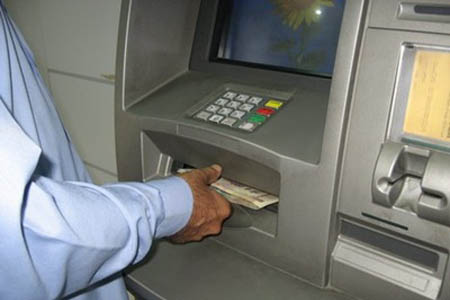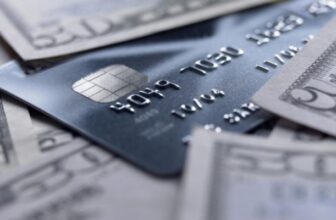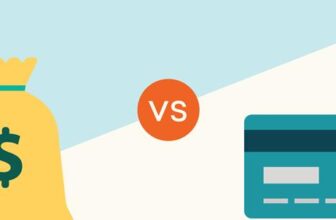
Debit cards have become an indispensable tool in the modern world of finance. They offer convenience, security, and ease of use, making them an attractive alternative to carrying cash or using credit cards. However, many people are unaware of the full range of benefits and potential risks associated with their debit cards. In this article, we will delve into the secrets of debit cards, uncovering their inner workings and providing you with the knowledge to make informed financial decisions.
Learn all the Secrets of Your Debit Cards
Debit cards have revolutionized the way we handle our finances. From everyday purchases to online shopping and travel, these cards offer a convenient and secure payment method. Learning the secrets of your debit cards will empower you to make smarter financial choices. Here’s what you need to know:
Understanding Debit Cards
Debit cards are plastic cards issued by financial institutions that allow cardholders to make purchases using funds from their bank accounts. Unlike credit cards, debit cards provide real-time access to available funds, eliminating the need to borrow money. This makes them a popular choice for individuals seeking greater control over their finances.
How Do Debit Cards Work?
Debit cards utilize the existing electronic funds transfer (EFT) system to process transactions. When you use your debit card to make a purchase, the card is swiped or inserted into a card reader, and the transaction details are transmitted to the merchant’s bank. The funds are then transferred from your bank account to the merchant’s account, completing the transaction.
Benefits of Using Debit Cards
- Convenience: Debit cards offer a convenient way to make purchases without carrying cash or writing checks. They can be used at a wide range of merchants, including retail stores, restaurants, and online platforms.
- Budgeting and Financial Control: With a debit card, you can only spend the funds available in your bank account, helping you stay within your budget and avoid accumulating debt.
- Fraud Protection: Debit cards come with built-in security features and protection against unauthorized transactions. Some cards also offer additional security measures, such as chip technology and two-factor authentication.
- No Interest Charges: Unlike credit cards, debit cards do not accrue interest charges because you are using your own funds. This can save you money in the long run.
Enhancing Security with Debit Cards
Debit cards provide several security features to protect your financial information and transactions. These include:
- PIN (Personal Identification Number): Your debit card is typically associated with a unique PIN that you enter at the point of sale to authorize transactions. Keep your PIN confidential and avoid sharing it with anyone.
- Chip Technology: Many debit cards now come with embedded microchips that provide an extra layer of security by encrypting transaction data. This makes it harder for fraudsters to clone or counterfeit your card.
- Two-Factor Authentication: Some online transactions may require additional verification, such as a one-time password (OTP) sent to your registered mobile number. This adds an extra level of security to ensure that only you can authorize transactions.
Managing Finances with Debit Cards
Debit cards can be powerful tools for managing your finances. Here are some strategies to make the most of your debit card:
- Track Your Spending: Most banks offer online or mobile banking services that allow you to monitor your transactions in real-time. Take advantage of these tools to track your spending and stay on top of your budget.
- Set Up Alerts: Enable transaction alerts on your debit card to receive notifications for every purchase or withdrawal. This will help you identify any unauthorized activity and take immediate action if needed.
- Automate Bill Payments: Many debit cards allow you to set up automatic bill payments, ensuring that your bills are paid on time without the hassle of manual payments.
- Savings Goals: Some banks offer debit card programs that round up your purchases to the nearest dollar and deposit the difference into a savings account. This simple technique can help you save money effortlessly.
Choosing the Right Debit Card
When selecting a debit card, it’s essential to consider your specific needs and financial goals. Here are a few factors to consider:
- Fees and Charges: Evaluate the fees associated with the debit card, such as monthly maintenance fees, ATM withdrawal fees, and foreign transaction fees. Look for a card with low or no fees that align with your usage patterns.
- Rewards Programs: Some debit cards offer rewards programs that provide cashback, discounts, or points for qualifying purchases. Assess the rewards offered and determine if they align with your spending habits.
- ATM Network: Ensure that your debit card is accepted at a wide range of ATMs, both domestically and internationally. This will provide you with convenient access to cash whenever you need it.
- Additional Features: Some debit cards come with added features like travel insurance, purchase protection, or extended warranty coverage. Assess these additional benefits and choose a card that offers the most value for your needs.
Secrets Behind Debit Card Transaction Process
The transaction process of debit cards involves a series of behind-the-scenes steps that ensure a seamless experience for the cardholder. Let’s take a closer look at the secrets behind the transaction process:
- Card Authorization: When you make a purchase, the merchant’s card terminal communicates with your bank to verify if your debit card is valid and if sufficient funds are available.
- Funds Hold: Once your card is authorized, the merchant’s bank places a hold on the transaction amount in your account to ensure the funds are reserved for the purchase.
- Clearing and Settlement: At the end of each day, the merchant’s bank sends a batch of authorized transactions to the card networks (e.g., Visa, Mastercard). The card networks then facilitate the transfer of funds from your bank account to the merchant’s account.
- Statement Generation: Your bank generates a monthly statement summarizing all the transactions made using your debit card during a billing cycle. This statement helps you track your spending and reconcile your accounts.
Understanding these steps can give you a clearer picture of how your debit card transactions are processed.
Common Misconceptions about Debit Cards
There are several misconceptions surrounding debit cards. Let’s debunk some of the most common myths:
- Myth: Debit cards are the same as credit cards.
- Reality: Debit cards and credit cards differ in significant ways. Debit cards use your available funds, while credit cards allow you to borrow money from the issuing bank.
- Myth: Debit cards don’t offer any rewards or benefits.
- Reality: Many debit cards come with rewards programs, offering cashback, discounts, or points for qualifying purchases.
- Myth: Debit cards are less secure than credit cards.
- Reality: Debit cards provide security features like PINs, chip technology, and two-factor authentication, making them a secure payment option.
Safeguarding Your Debit Card Information
To protect yourself from potential risks, it’s crucial to safeguard your debit card information. Here are some best practices:
- Keep Your Card Secure: Treat your debit card like cash and keep it in a safe place. Avoid leaving it unattended or sharing it with anyone.
- Be Mindful of Skimming Devices: Skimming devices can be used by fraudsters to capture your card information. Inspect card readers before use and report any suspicious devices to the merchant or bank.
- Monitor Your Account: Regularly review your bank statements and transaction history to identify any unauthorized activity. Report any discrepancies to your bank immediately.
- Be Cautious with Online Transactions: When making online purchases, ensure you are on a secure and reputable website. Look for the padlock symbol in the address bar and use secure payment gateways.
Debit Card vs. Credit Card: Key Differences
Debit cards and credit cards offer distinct features and advantages. Here are the key differences between the two:
- Funding Source: Debit cards use the funds available in your bank account, while credit cards allow you to borrow money from the issuing bank.
- Interest Charges: Debit cards do not accrue interest charges since you are using your own funds. Credit cards accumulate interest on the unpaid balance.
- Credit History: Debit card usage does not impact your credit history or credit score, as there is no credit involved. Credit card usage can impact your credit history positively or negatively.
- Borrowing Limit: Debit cards have a spending limit based on the available funds in your bank account. Credit cards have a pre-approved borrowing limit set by the issuing bank.
- Repayment Options: Debit card transactions are deducted immediately from your bank account. Credit card transactions can be paid off in full or in installments, with interest charges on the remaining balance.
Maximizing Rewards with Debit Cards
While debit cards may not offer as extensive rewards programs as credit cards, there are still ways to maximize the benefits. Here are some tips:
- Cashback Offers: Look for debit cards that offer cashback on specific categories or partner merchants. Utilize these offers to earn rewards on your everyday purchases.
- Loyalty Programs: Some banks have tie-ups with retail partners, providing exclusive discounts or additional rewards when using their debit cards. Explore these partnerships to make the most of your spending.
- Round-Up Programs: Certain debit card programs round up your purchases to the nearest dollar and deposit the difference into a savings account. Take advantage of this feature to accumulate savings effortlessly.
Debit Card Fees and Charges: What You Should Know
While debit cards generally have fewer fees compared to credit cards, it’s essential to be aware of any charges associated with your card. Here are some common fees and charges:
- Monthly Maintenance Fee: Some banks charge a monthly fee for maintaining a debit card. Look for banks that offer fee waivers based on your account balance or transaction volume.
- ATM Withdrawal Fee: If you withdraw cash from an ATM that is not affiliated with your bank, you may incur an ATM withdrawal fee. Check if your bank has an extensive network of fee-free ATMs.
- Foreign Transaction Fee: When using your debit card for purchases or withdrawals in a foreign currency or country, some banks levy foreign transaction fees. Compare the foreign transaction fees of different banks before choosing a card for international travel.
Online Shopping with Debit Cards
Debit cards provide a secure and convenient option for online shopping. Here are some tips for safe online transactions:
- Secure Websites: Only make purchases on secure websites. Look for the padlock symbol in the address bar and ensure the website’s URL starts with “https.”
- Virtual Card Numbers: Some banks offer virtual card numbers that can be used for online transactions. These temporary numbers add an extra layer of security by shielding your actual card details.
- Two-Factor Authentication: Enable two-factor authentication for online transactions, if available. This ensures that only you can authorize transactions by providing a one-time password (OTP) sent to your registered mobile number.
Debit Card Fraud: How to Protect Yourself
Debit card fraud is a growing concern, but there are measures you can take to safeguard your card and personal information:
- Regularly Check Your Accounts: Monitor your bank accounts regularly for any unauthorized transactions. Promptly report any suspicious activity to your bank.
- Enable Transaction Alerts: Sign up for transaction alerts via SMS or email. These alerts will notify you of any transactions made with your debit card.
- Keep Your PIN Confidential: Memorize your PIN and avoid writing it down. Never share your PIN with anyone, including bank employees or family members.
- Check Card Readers: Before using an ATM or card reader, inspect it for any signs of tampering. Look for loose parts, unusual attachments, or hidden cameras.
Mobile Payments and Debit Cards
Mobile payment solutions have gained popularity in recent years, allowing users to make purchases using their smartphones or wearable devices. Here’s how debit cards fit into the mobile payment landscape:
- Contactless Payments: Many debit cards now come with contactless payment capabilities, allowing you to make quick and secure transactions by tapping your card on compatible payment terminals.
- Mobile Wallets: You can add your debit card to popular mobile wallet apps like Apple Pay, Google Pay, or Samsung Pay. These apps store your card details securely, allowing you to make purchases using your smartphone.
- Tokenization: Mobile payment systems use a technology called tokenization to protect your card information. Instead of sharing your actual card details, a unique token is generated for each transaction, enhancing security.
Traveling with Debit Cards: Tips and Tricks
When traveling, it’s essential to plan ahead to ensure you can access your funds conveniently and securely. Here are some tips for using debit cards while traveling:
- Notify Your Bank: Inform your bank about your travel plans to avoid any unexpected card declines due to suspected fraud. Provide them with the dates and destinations of your trip.
- Check ATM Availability: Research the availability of ATMs at your travel destination. Make sure your debit card is accepted internationally and identify any associated fees.
- Carry Multiple Payment Options: It’s advisable to carry multiple payment options, including a backup debit card, credit card, or cash. This ensures that you have alternatives in case of any issues with a particular card.
- Use Prepaid Travel Cards: Prepaid travel cards can be a convenient alternative to debit cards when traveling. They allow you to load multiple currencies onto a single card, offering favorable exchange rates and added security.
Understanding Debit Card Disputes
In certain situations, you may encounter disputes related to debit card transactions. Here’s what you need to know:
- Unauthorized Charges: If you notice any unauthorized charges on your debit card, report them to your bank immediately. They will guide you through the dispute resolution process and initiate an investigation.
- Merchant Disputes: If you have a dispute with a merchant, such as receiving a defective product or not receiving the purchased item, contact your bank and provide them with the necessary details. They can assist in resolving the issue.
- Time Limitations: It’s important to be aware of the time limitations for disputing transactions. Notify your bank within the specified timeframe to ensure your dispute is considered.
Tracking Expenses with Debit Cards
Debit cards can be valuable tools for tracking your expenses and managing your budget. Here’s how you can leverage your debit card for better financial control:
- Online Banking: Most banks provide online or mobile banking services that allow you to view your transactions and account balances in real-time. Utilize these platforms to monitor your expenses and track your budget.
- Categorize Your Spending: Consider categorizing your expenses to identify areas where you may be overspending. Create categories such as groceries, dining out, entertainment, and allocate a budget for each category.
- Monthly Statements: Review your monthly bank statements to gain a comprehensive overview of your spending habits. Identify any patterns or areas where you can cut back to save more money.
The Future of Debit Cards: Emerging Trends
The world of debit cards continues to evolve, with new technologies and trends shaping the future. Here are some emerging trends to watch out for:
- Contactless Payments: Contactless payments are becoming increasingly popular, offering a seamless and hygienic payment experience. Expect to see more merchants and banks embracing this technology.
- Biometric Authentication: As technology advances, biometric authentication methods like fingerprint scanning and facial recognition may become more prevalent for authorizing debit card transactions.
- Integration with Digital Wallets: Debit cards are integrating with digital wallets, allowing users to link their cards to mobile payment apps. This enhances convenience and expands the range of accepted payment methods.
- Enhanced Security Measures: Financial institutions are continuously improving the security features of debit cards. Expect to see advancements in areas like tokenization, machine learning-based fraud detection, and real-time transaction monitoring.
Debit Card Security Features: What to Look For
When choosing a debit card, it’s important to consider the security features provided by the issuing bank. Look for the following security measures:
- Chip Technology: Ensure your debit card has an embedded microchip. This chip encrypts transaction data, making it harder for fraudsters to clone or counterfeit your card.
- Two-Factor Authentication: Some banks provide two-factor authentication methods for online transactions. This adds an extra layer of security by requiring an additional verification step.
- Text or Email Alerts: Opt for a debit card that offers transaction alerts via text message or email. These alerts notify you of any suspicious activity and provide an early warning system for potential fraud.
Financial Education for Debit Card Users
Financial education is essential for maximizing the benefits of debit cards and making informed financial decisions. Here are some resources to enhance your financial knowledge:
- Bank Websites: Explore your bank’s website for educational resources, articles, and guides related to debit cards, personal finance, and money management.
- Financial Literacy Programs: Many organizations offer free financial literacy programs and workshops. These programs cover various topics, including budgeting, saving, and responsible card usage.
- Online Blogs and Forums: There are numerous blogs and forums dedicated to personal finance. Engage with the online community to learn from others’ experiences and gather valuable insights.
Common Pitfalls to Avoid with Debit Cards
While debit cards offer many advantages, it’s important to be aware of potential pitfalls and avoid them. Here are some common mistakes to steer clear of:
- Overspending: Since debit cards provide real-time access to your funds, it’s crucial to stick to your budget and avoid overspending. Regularly track your expenses to ensure you’re not exceeding your means.
- Neglecting Security Practices: Don’t overlook basic security practices like keeping your PIN confidential, regularly monitoring your account, and being cautious when using your debit card online.
- Ignoring Transaction Details: Always review your transaction details for accuracy. Mistakes or unauthorized charges can occur, and addressing them promptly is essential to protect your finances.
- Using Public Wi-Fi for Transactions: Avoid making debit card transactions when connected to public Wi-Fi networks. These networks can be vulnerable to hacking, potentially compromising your card details.
- Not Reading Cardholder Agreements: Take the time to read and understand the terms and conditions of your debit card agreement. This will help you be aware of any fees, charges, or limitations associated with your card.
Frequently Asked Questions (FAQs)
What is a debit card?
A debit card is a plastic card issued by a financial institution that allows cardholders to make purchases using funds from their bank accounts.
How does a debit card work?
When you use a debit card to make a purchase, the transaction details are transmitted to the merchant’s bank, and the funds are transferred from your bank account to the merchant’s account.
What are the benefits of using a debit card?
Debit cards offer convenience, budgeting control, fraud protection, and the ability to avoid interest charges since you’re using your own funds.
How can I enhance the security of my debit card?
You can enhance the security of your debit card by keeping your PIN confidential, utilizing chip technology, enabling two-factor authentication, and monitoring your account for any unauthorized activity.
What should I do if I encounter a debit card dispute?
If you encounter a dispute related to a debit card transaction, promptly report it to your bank. They will guide you through the dispute resolution process and investigate the issue.
Can I use my debit card for online shopping?
Yes, debit cards can be used for online shopping. Ensure you’re on a secure website, consider using virtual card numbers, and enable two-factor authentication for added security.
Conclusion
By unlocking the secrets of your debit cards, you gain valuable insights into their inner workings, benefits, and potential risks. Armed with this knowledge, you can make informed financial decisions, protect yourself from fraud, and maximize the convenience and security offered by debit cards. Remember to choose the right debit card for your needs, understand the transaction process, and practice good financial habits to fully leverage the power of your debit cards.
In India, there are more than 85 million debit cards already issued by the banks and every month about 2 million debits cards are being added. It implies that 8-10% of Indian population is in the possession of a debit card and with the current growth, it is likely that in another five years every Indian would be in the possession of a debit card. I am damn sure that the reader of this article must be a proud owner of debit card. Debit card is an essential requirement in the fast moving world that is run by plastic money.
Responsible use of your debit card and getting the optimum benefits out of your debit cards demands that you should be well informed about the various aspects of debit cards. Carry on reading further to know more about debit cards.
Tips to Use your Debit Card Responsibly
Before You Start Using Your Cards:
- Banks may try to sell you fancy sounding cards but it makes sense to go for one that is suitable to your lifestyle, psychology and personal habits. Understand various features, charges and fees even before you sign up for any kind of debit card.
- As soon as you receive your card, you should verify all the information and then sign on the signature panel on the reverse of your card.
At ATMs:
- If you are not familiar with how to operate ATM, seek the help of family members instead of any strangers.
- Change your PIN at the time of first use and then regularly at least once in 3-6 months depending upon your usage.
- Never disclose your PIN to anybody. As far as possible, keep it to your memory instead of writing it down. Even if you write it on a piece of paper, ensure that it doesn’t fall in the hands of any stranger.
- Never forget your PIN. If you enter wrong PIN in the ATM for more than 2-3 attempts, the card would be blocked. Banks charge minimum Rs.25 + tax for generating new PIN for you.
- In the event of renewing, upgrading, or reissuing of expired cards, dispose off the old card by cutting it diagonally across the card.
- Insist on carrying out ATM transactions in complete privacy. Avoid using your card at ATMs, which are located at secluded premises.
- In case of technical faults, it may happen that the card is held back in the machine. It may occasionally happen that cash does not come out but the amount is debited from your account. Inform the call centers of the bank immediately. Write down the name and other details of the security guard and make him a witness.
For Shopping:
You must ensure that under no circumstances your debit card details fall in the hands of unscrupulous elements. If by any chance your card information is stolen then you might end up with huge loss of money even before you realize it.
- When using the cards for shopping, you should be more vigilant. Keep a close eye on card swiping, signing the charge slip and entry of the details into the register of the merchant.
- Ask for applicable transaction charges at the retail stores. Many stores charge 1.5 to 2.5% of the bill amount as service charges for accepting payment through debit cards.
- Destroy air tickets, bills, receipts or anything else that displays your card information.
- Understand about dispute resolution policies in case of defective goods purchased through online shopping.
- Avoid using your debit cards for internet payment at unknown merchants.
General:
- Keep an update on various schemes, promotions and offers available on your debit cards. Banks regularly encourage cardholders with cash back, reward points, and other freebies. During the festival time, the banks offer special gifts and attractive discounts. Plan your shopping accordingly to get the optimum benefits out of such schemes.
- If you intend to use your international debit cards overseas then you must understand thoroughly about various features, commissions on foreign exchange, charges, fees and other terms and conditions before going abroad. Remember that your purchases or withdrawals are in foreign currency but your bank account is debited with Rupee.
- In case of loss of your card, report the matter immediately to the concerned bank.
- Understand the liability policy of the bank and the extent of protection in case of unauthorized purchases due to loss/theft of card and frauds.





